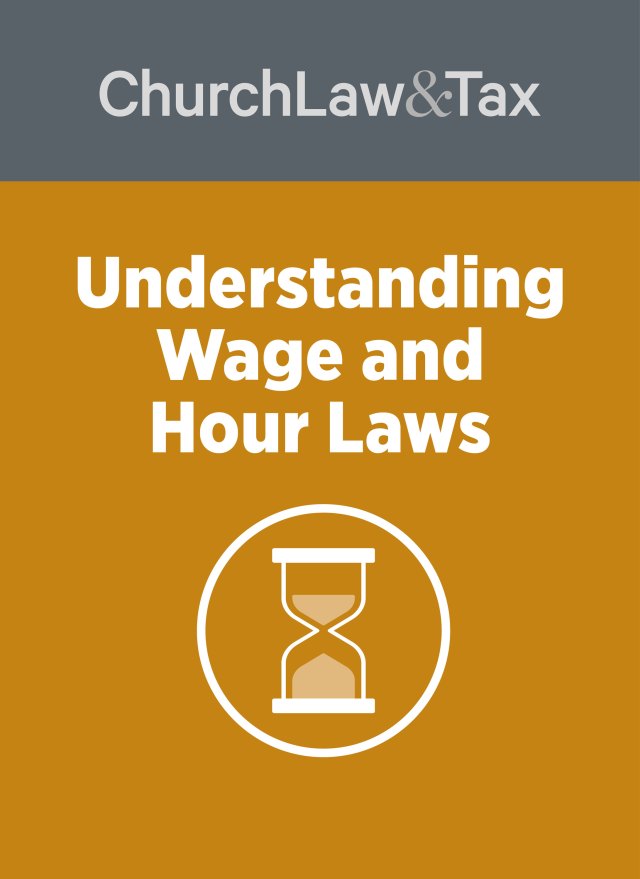Church treasurers should be familiar with a number of bills that have been introduced in Congress in recent months. These include the following:
1. Minimum wage
Several bills have been introduced in Congress that would raise the federal minimum wage. The Fair Minimum Wage Act of 2001 (S.277, H.R.665) would increase the minimum wage to $6.65 (an increase of $1.50) over a three-year period. The Minimum Wage Act of 2001 (H.R.222) would increase the minimum wage by $1.00 over two years.
2. “Comp time”
Many churches have implemented “comp time” arrangements as a way to avoid paying overtime compensation to hourly employees who work more than 40 hours in one week. Instead of paying employees overtime compensation at a rate of one and a half times their normal rate of pay (“time and a half”) for hours worked in excess of 40 in the same week, the employer “contributes” the excess hours to a “comp time account.” Employees who work less than 40 hours in a week can draw upon their accumulated comp time so that they receive their normal paycheck for 40 hours of work. Such arrangements violate the overtime pay requirements of the Fair Labor Standards Act. A bill introduced in the Senate (S.624) would amend the Fair Labor Standards Act to permit the use of comp time arrangements by employers and employees without a violation of the overtime pay requirements, but only if the employer provides an employee with “compensatory time off at a rate not less than one and one-half hours for each hour of employment for which monetary overtime compensation is required.” In other words, instead of paying overtime compensation to hourly employees who work in excess of 40 hours during a week, an employer can provide them with one and half hours of comp time (to be used at the employees’ discretion) for every hour worked in excess of 40 in the same week.
Example. Lois is an hourly church employee who worked 45 hours this week. If the church is a covered employer under the Fair Labor Standards Act, then it is required to pay Lois at a rate of time-and-a-half for all hours worked in excess of 40 in the same week. If the proposed amendment to the Fair Labor Standards Act is enacted, Lois could elect to receive 40 hours of regular pay and accumulate 7.5 hours (5 hours times 1.5) of comp time in lieu of being paid overtime compensation for the hours she worked in excess of 40 in the same week.
3. Pension reform
A bill (H.R.10) introduced by Congressmen Portman (R-OH) and Cardin (D-MD) would (1) increase the amount that can be contributed to many retirement plans by increasing the “compensation limit” used to compute permissible contributions and eliminating the rule limiting permissible contributions to 25 percent of income; and (2) increase the amount you can contribute to an IRA from the current $2,000 to $5,000 (phased in over several years). This bill has broad bipartisan support.
4. FMLA
The Family Medical Leave Act requires every employer that is “engaged in commerce or in any industry or activity affecting commerce that employs 50 or more employees” to grant eligible employees up to 12 workweeks of unpaid leave during any 12-month period in any one or more of the following situations: (1) the birth of a son or daughter of the employee (in order to care for such son or daughter); (2) the placement of a son or daughter with the employee for adoption or foster care; (3) in order to care for the spouse, or a son, daughter, or parent, of the employee, if such spouse, son, daughter, or parent has a serious health condition; or (4) because of a serious health condition that makes the employee unable to perform the functions of the position of such employee. The “Right Start Act of 2001,” which has been introduced in both houses of Congress (S.18, H.R.265) would (1) extend coverage under the Act to any employer with at least 25 employees; (2) provide employees with up to 24 hours of additional unpaid leave each year for “academic activities” at their child’s school (such as parent-teacher conferences); and (3) provide for paid leave under FMLA that would be partially funded through federal matching funds to states that would be used to expand unemployment and disability insurance programs.
This content originally appeared in Church Treasurer Alert, June 2001.


